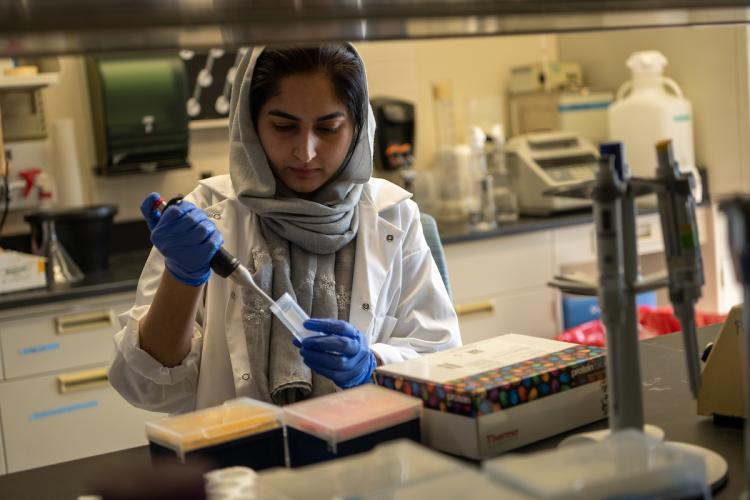
Researchers at OHIO receive prestigious NIH grant to create undergrad summer program focused on diabetes research

A summer program for undergraduate students who plan to pursue a graduate or medical degree related to diabetes research will be launched at Ohio University in 2023 thanks to support from a prestigious National Institutes of Health Research Education Program (R25) grant. The funding is the result of a collaborative effort by Ohio University researchers at the Diabetes Institute who want to encourage more students to consider a career in diabetes research.
The grant, titled Diabetes Institute Summer Interprofessional Research Experience (DISIRE) for Undergraduates, is a five-year award funded by the U.S. Department of Health and Human Services, National Institutes of Health (NIH), and the National Institute of Diabetes and Digestive and Kidney Diseases.
The summer program will last 10 weeks, beginning in 2023, and will accept eight to 10 undergraduate students from all over the country. The students will learn valuable research skills, be mentored by OHIO faculty who work in diabetes research, hear from clinicians, take part in online courses, and create a capstone project which they can bring back to their respective universities and implement on those campuses.
“The students will go through a rigorous program resulting in their gaining insight into the history and pathophysiology of the disease as well as epidemiological, social, and molecular/cellular research efforts directed at uncovering new therapeutic targets and treatments for the variety of problems associated with diabetes,” explained John Kopchick, Ph.D., Goll-Ohio Eminent Scholar, distinguished professor of molecular biology and principal investigator on the grant.
Although Kopchick is leading the program, Elizabeth Beverly, Ph.D., Osteopathic Heritage Foundation Ralph S. Licklider, D.O., Endowed Professor in Behavioral Diabetes, Kevin Lee, Ph.D., associate professor of molecular biology, and Craig Nunemaker, Ph.D., associate professor with a focus in diabetes, are also assisting in various ways as co-investigators.
The goal of the program is to train undergraduate students in diabetes research and encourage them to apply to graduate and/or medical school and ultimately earn a degree in which diabetes research is a significant segment of their career.
Beverly said the investigators are interested in recruiting first-generation, Appalachian students.
“There is a high rate of diabetes and related complications in Appalachia, so the more research that can be done in this area and the more information that comes from researchers located in and originally from the region will only benefit the community here,” Beverly said.
Kopchick, who is originally from Appalachian Pennsylvania, will oversee the program and research. Lee will oversee the biomedical portion of the program, work with schools from the region to help recruit students and ensure the students’ projects can be applied at their respective university. Nunemaker will oversee the mentoring portion of the program and match OHIO faculty in the biomedical sciences, engineering, and other disciplines with students in the program. Beverly will evaluate the grant and program, assure that the students are receiving the educational outcomes that were planned, as well as oversee the capstone projects.
The grant provides funding for five years. However, with positive outcomes, NIH support for the program could continue.
The program is open to all undergraduate students in the country who are interested in pursuing a graduate degree that would help those with diabetes, whether that is in basic sciences, social science, medical science, or engineering. Ohio University students, first generation students, students from Appalachia and students from underrepresented communities are encouraged to apply. Applications will be due this fall.
The NIH R25 grant is only awarded to one institution every year and was created to support research education activities that complement and/or enhance the training of a workforce to meet the nation’s biomedical, behavioral and clinical research needs. Additionally, the award will hopefully increase the diversity of this workforce and help recruit individuals with specific specialty or disciplinary backgrounds that will evolve into research careers in this field.
